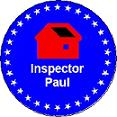Termite Inspections: “The North Carolina Official Wood-Destroying Insect Information Report (Form No. WDIR 100), adopted by the Structural Pest Control Committee, is used for
reporting the presence or absence of wood-destroying insects and their evidence in structures for sale. To issue this report
an individual must be licensed by the North Carolina Department of Agriculture & Consumer Services, Structural Pest Control
Division or work for someone who is licensed to perform structural pest control work. It is the only form that is legal for
this purpose and is required on almost every residential structure sold.”(source: http://www.ncagr.com/SPCAP/structural/pubs/wdir.htm ) “…all licensees
must provide proof of insurance before the license is issued.” (source:
http://www.ncagr.com/SPCAP/structural/certify.htm ) Insurance underwriters for pest control applicators will require that the
majority of the company’s revenue come from pest control work. South Carolina has similar regulations. Because of state regulations if you are considering a home inspector that can also personally provide you
with a WDIR report you are likely to end up with a part time home inspector. We
will be happy to give you the name of several licensed pest control companies.
Septic System Inspections: For starters remember that home inspections are required by state laws to be
non destructive. Septic systems are underground components. In our opinion the only way to properly inspect a septic system is to dig up the cover and pump the tank;
we do not have the equipment, expertise, or desire to be in that line of business. Some
inspectors will offer what is called a “dye test” where they flush a dye down the toilet and look for signs of
the dye in the leach field; if you’ve ever had a dye test done the inspector will almost always recommend you have the
tank pumped and the system inspected by a septic company. I do not feel it is
right to charge you a fee to perform an inspection knowing I’m going to direct you to a specialist for a more intrusive
inspection.
The state of North Carolina regulates and licenses wastewater contractors and inspectors, if a home inspector
offers this service in North
Carolina they must be licensed
as a wastewater inspector by the state. A list of licensed wastewater inspectors
is available at www.ncowcicb.info
The South Carolina standards of practice specifically prohibit digging. Information on licensed wastewater contractors can be obtained
by contacting the South Carolina Department of Health and Environmental Control.
Asbestos Testing: In order to perform inspections for Asbestos in both North Carolina and South Carolina you must
be licensed by the state. Information on Asbestos Licensing Requirements and
regulations in North Carolina is available at http://www.epi.state.nc.us/epi/asbestos.html and South Carolina information is available at www.scdhec.gov If you need an asbestos inspection please make sure the inspector is properly
licensed to reduce your liability.
Lead Testing: Although
testing for lead in paint and other building materials is relatively easily and can be conducted in a non destructive manner
both North and South Carolina require people to have specific licensed to test for lead. Information on Lead Licensing Requirements in North Carolina is available at http://www.epi.state.nc.us/epi/lead.html and South Carolina is available at www.scdhec.gov
We are not going to
lie to our clients and/or break the law just to earn a few extra dollars, nor are we willing to put our clients in a situation
that could cause them or anyone else harm. If you retain our services to perform your home inspection services
we will be happy to assist you in locating qualified licensed people who can perform the few services we are not licensed
and/or qualified to perform.

